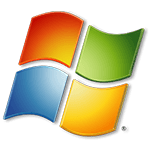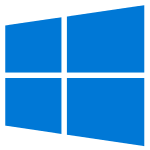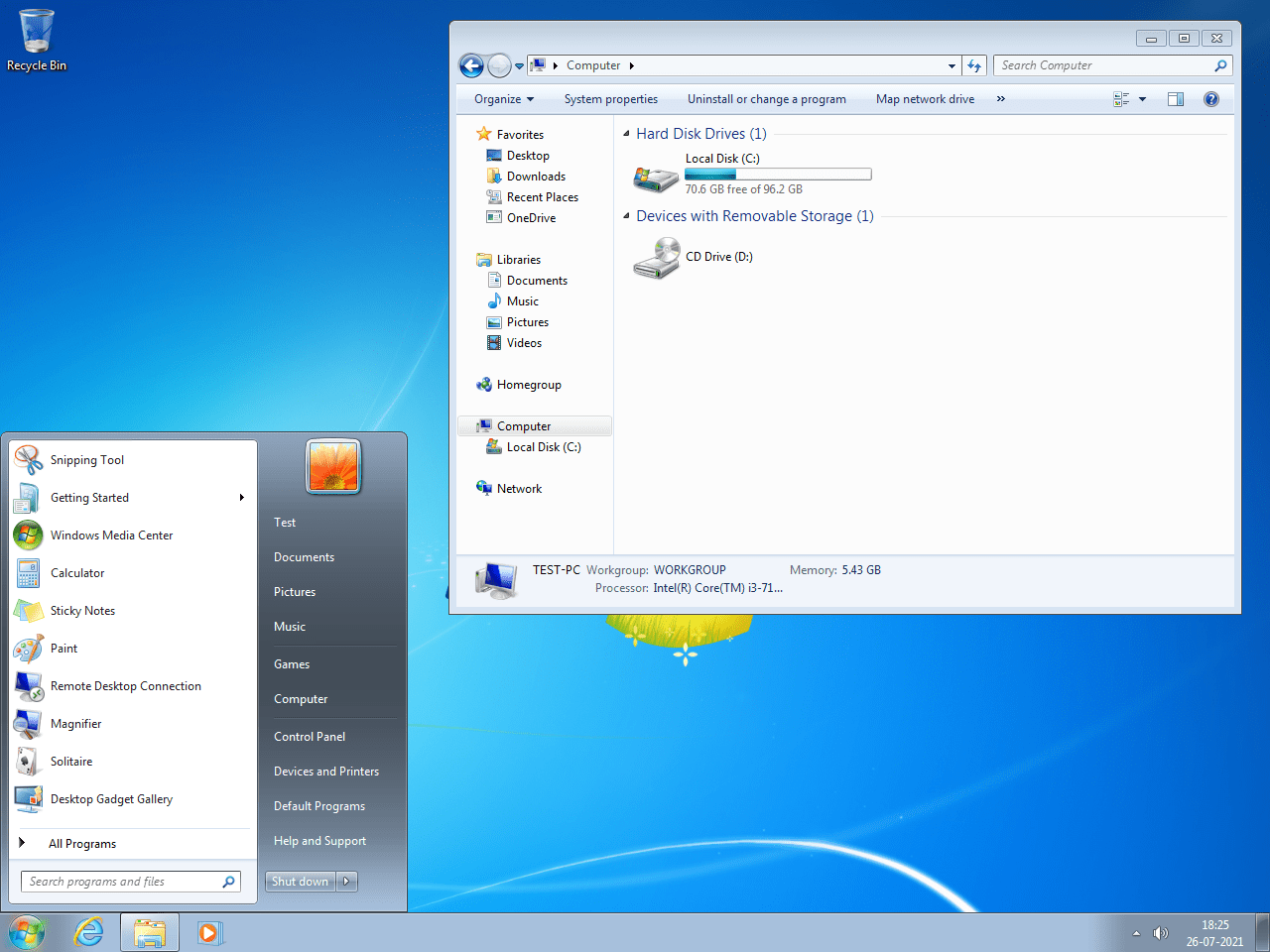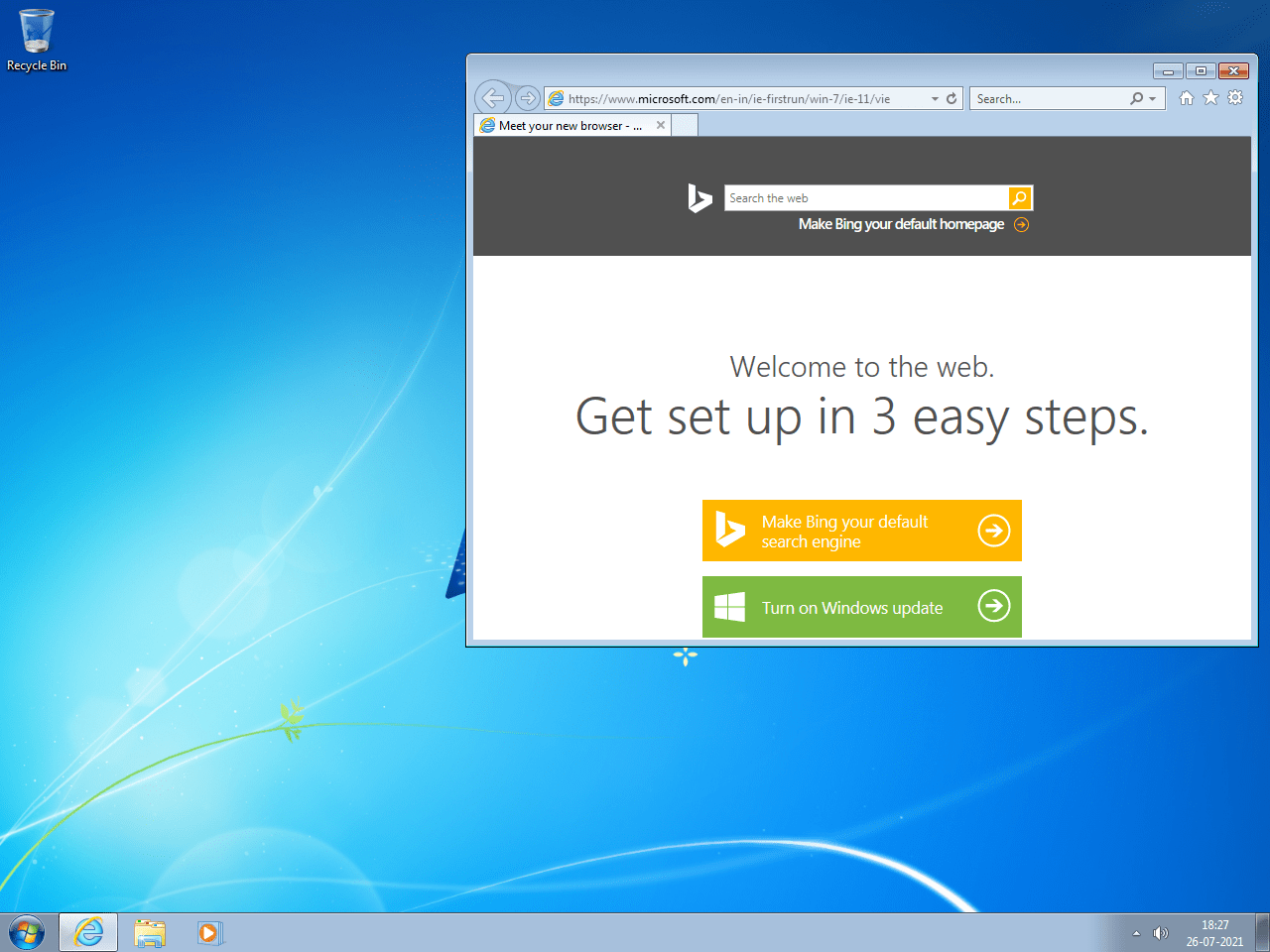
Windows 7 Ultimate 64-Bit (X64) and 32-Bit (X86) Free Download ISO Disc Image Files
OS Name - Windows 7, Microsoft Windows
OS Family - Windows
Developer - Microsoft
Platform - Desktop
Description 
Windows 7 Ultimate is the most advanced edition, primarily meant for home PC users. The Ultimate and Enterprise editions are almost identical in terms of features, the only difference being in licensing and upgrade options. The 32-bit edition of Windows 7 Ultimate supports up to 4 GB of RAM, while the 64-bit edition supports up to 192 GB of RAM. Compared to Home Premium and Professional, the Ultimate edition offers additional features such as BitLocker drive encryption and multilingual user interface.
Windows 7 Home supports a maximum of one physical processor in Basic and Home Premium editions, while the Ultimate edition supports up to two physical processors.
The download menu includes service packs, ISO files, version N, and language packs.
Update - The August 2018 update ISO has also been added to the download menu.
Update 2 - Support for Windows 7 ended on January 14, 2020. If you are still using Windows 7, your PC may be more vulnerable to security risks. Click here to know more. We suggest using Windows 10 on all your PCs.
General information (for all editions)
Windows 7 (the successor to Windows Vista) was released to the public on October 22, 2009, and was more successful than Windows Vista. The graphical user interface of Windows 7 is similar to Windows Vista, glass-like interface design (known as Windows Aero) is available in all versions of Windows 7 (except the Starter Edition). Compared to the earlier version, many new features have been added to the user interface, such that the taskbar can now pin the app, users can use the photo slideshow as a desktop wallpaper, redesign of Windows Explorer and Notification area, new jump list menu when right-click in the taskbar app, new keyboard shortcuts to control UI elements, new Window management features, and much more.
There are some new features and functionality available in Windows 7 that are not available in Windows Vista such as, Libraries in Winidows Explorer, Multi-Touch enabled, app work progress in taskbar, Devices and Printers in control panel, Device Stage, easy dual monitor setup, home group , Microsoft Virtual PC, VHD (Virtual Hard Disk) file format support, and many improvements in performance and hardware support. Your favorite pre-installed apps like Internet Explorer, Windows Media Player and Windows Media Center come with the latest version in Windows 7.
Windows 7 overall more stable, secure, and improved version of Vista. There are 6 different editions of Windows 7, which are Starter, Home Basic, Home Premium, Professional, Enterprise and Ultimate. Except the Starter, all versions are available for 32 and 64-bit capable systems. A service pack and platform update was issued by Microsoft for Windows 7. Both service pack and platform update include hardware / software support improvements, while the platform update include new version of IE browser, Internet Explorer 10.
Specification (Ultimate edition)
| Available in | 100+ languages |
| CPU Platform(s) | IA-32, x86-64 |
| License | Commercial |
Screenshot(s)
System requirements
Minimum for Ultimate edition:
- 1 GHz processor or higher.
- 1GB of RAM.
- 20GB of free disk space.
Installation instructions (for clean installation)
Starting installer in PC (via USB)
Follow the steps given below:
- Download the Windows 7 ISO image file from the download section.
- Install a USB bootable creation software on your Windows computer.
- Plug in a USB flash drive (at least 8-16 GB of space) with your computer.
- Open the USB bootable creation software, and select the ISO image file of Windows 7, and start the process.
- As soon as done, plug the bootable USB into a system where you want to install Windows 7.
- Restart the computer.
- Press the boot device menu key and select USB to boot first.
- Select USB device and start the Windows 7 installer.
Starting installer in VMware
- Download the Windows 7 ISO image file from the download section.
- Launch the VMware Player, and start creating a new virtual machine.
- Select the ISO image file of Windows 7, and use the default settings for the virtual machine.
- Start the virtual machine and go to the Windows 7 installer.
Starting installer in VirtualBox
- Download the Windows 7 ISO image file from the download section.
- Launch the Virtualbox application on your computer, and start creating a new virtual machine.
- Select Windows 7 and use defualt settings for the virtual machine.
- Start VM and when it asks to select the Host Drive, then select the downloaded Windows 7 ISO file in step 1.
Last step
As soon as you go to the Windows 7 install screen, follow the steps given below:
- Select language, time, etc. settings, go to next, and press 'Install Now'.
- Select the installation type on Custom (Advanced).
- On the partition selection screen, if your PC already has a Windows installed, then select Windows Drive and format the partition. Or, select the Unallocated space, click the Drive Options link and create a new partition.
- Select the primary partition, press Next, and start the installation.
- Wait while Windows 7 is being installed on your PC, your computer may restart several times during installation, don't press any key and do not eject the USB drive.
- After the installation is complete, create a user account and follow the instructions on the screen.
- As soon as you go to the Windows 7 desktop screen, remove the USB flash drive and activate your windows.
The product activation key is not included in the download file, please use your own.
Download help
In the download menu, 'x86' stands for 32-bit editions, 'x64' is for 64-bit versions and 'SP' stands for Service Pack.
Comments
New releases in  Windows 7 View All
Windows 7 View All

Windows 7 Multi-Edition Checked Build ISO X86 (32-Bit) and X64 (64-Bit) Free Download
4.2
Windows 7 Enterprise X86 (32-Bit) and X64 (64-Bit) Free Download ISO Disc Image Files
4.2
Windows 7 Professional X86 (32-Bit) and X64 (64-Bit) Free Download ISO Disc Image Files
4.2
Windows 7 Home Premium X86 (32-Bit) and X64 (64-Bit) Free Download ISO Disc Image Files
4.4
Windows 7 Home Basic X86 (32-Bit) Free Download ISO Disc Image Files
4.5 Latest uploads
Latest uploads
Zorin OS 17.2 (Sep, 2024) 64-bit Official ISO Free Download
4.4MX Linux MX-23.4 Libretto (September, 2024) Official 32-bit 64-bit ISO Download
4.7Kali Linux 2024.3 (September, 2024) Desktop 32-bit 64-bit ISO Free Download
4.8Manjaro Linux 24.1.0 Xahea (October, 2024) 64-bit Official ISO Free Download
4.6







